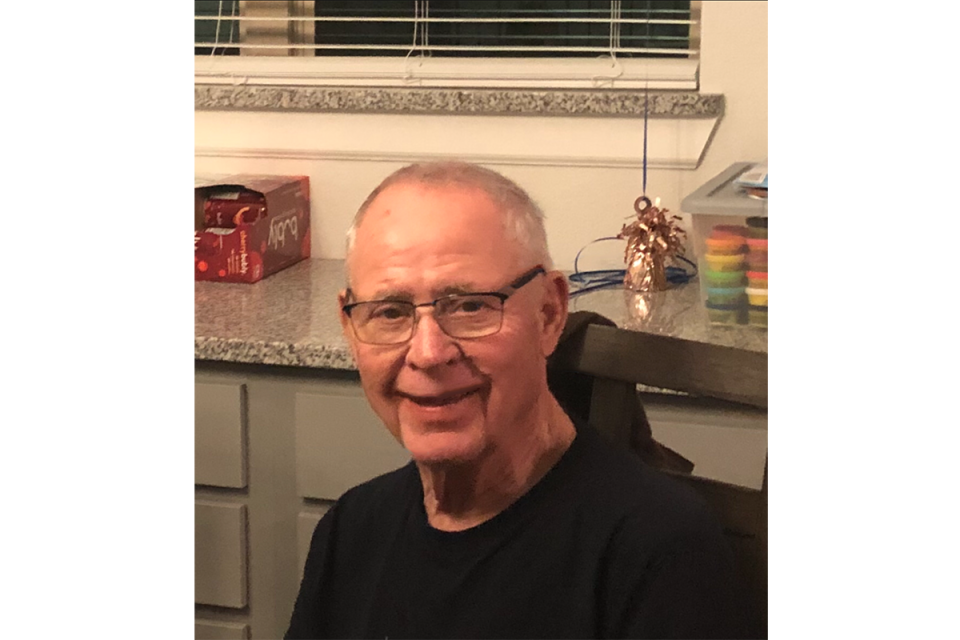As soon as the group saw his tumor shrinking, they sent him to see Albert Amini, MD, general surgeon at HonorHealth. Wayne had become a candidate for the Whipple procedure to remove the tumor from his pancreas.
“The introduction of minimally invasive surgery and robotic surgery has allowed for pancreas resections through smaller incisions,” said Dr. Amini. “This allows for quicker return to normal quality of life and the ability to continue with therapy after surgery.”
Wayne had surgery in January 2019 and is now cancer-free. He credits his recovery to the team at HonorHealth – and to his partner, Donna.
“I can’t say enough good things about Dr. Borazanci, Dr. Amini and Gayle,” said Wayne. “All the others who helped me along the way were so encouraging. I don’t think you could get a better team. That really, truly is what it was – a team. There were a lot of people involved throughout the process and they got a good result.”
“I feel really good,” said Wayne of his life now. He still works and has managed a brokerage business for many years, which he has no plans to stop doing anytime soon. He walks roughly 20 miles a week and goes to the gym to keep himself healthy. “If you took me to a dance, I think I could dance all night,” he said.
“Wayne’s journey is a good example of the fact that we’re starting to show that pancreatic cancer can have a good outcome,” said Dr. Borazanci. “It’s still a tough cancer, I don’t want to downplay how difficult it is, but there are situations where someone goes through treatment and does really well. We want to get to a point where everyone has a great outcome in the future.”
A wholistic approach to care
“Pancreatic cancer necessitates a comprehensive treatment plan all across the spectrum,” said Dr. Sckolnik. “There’s no one-size-fits-all approach, so that’s really the value of the Tumor Board. We bring together 20-30 people who all have different perspectives and backgrounds and share common information and studies and then collaboratively make decisions.”
This approach allows them to bring in alternative therapies and clinical trials when appropriate. At HonorHealth Research Institute, our clinical trials use the latest advancements in diagnosis, tumor profiling, therapy prior to surgery, minimally invasive surgery and intra-operative radiotherapy that helps us achieve the best possible outcomes for all pancreatic cancer patients.
It also opens the door to a number of resources available within HonorHealth Cancer Care, including nutritional support, genetic counseling, physical and occupational therapy, lymphedema clinics and more. This next-level care, created with each patient in mind, can dramatically improve a cancer patient’s long-term prognosis.
“The multidisciplinary Tumor Board allows us to come up with the most advanced and most personalized treatment for each patient,” said Dr. Amini. “The best success and best chance of long-term survival has come through multiple modalities attacking pancreas cancer. Neoadjuvant (prior to surgery) chemotherapy and radiation allows for earlier treatment of micro metastatic disease and better selection of patients.”
“We’re opening a window to treatment opportunities that are available to these patients,” said Dr. Sckolnik. “That’s what happens with collaboration because no one knows the entire encyclopedia of cancer therapy individually, but together we know so much more.”
According to Dr. Borazanci, it really does take a village when it comes to pancreatic cancer treatment and management. “There are so many challenges that require different types of doctors helping the individual,” he said. “Being able to work in a setting where different physicians can work together to manage a challenging case definitely has the chance to improve survival rates and improve quality of life for these patients.”
